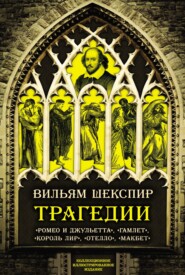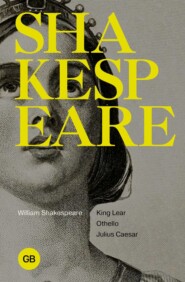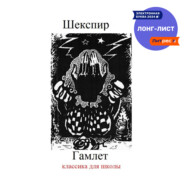По всем вопросам обращайтесь на: info@litportal.ru
(©) 2003-2024.
✖
Love's Labour's Lost
Настройки чтения
Размер шрифта
Высота строк
Поля
Holding a trencher, jesting merrily?
You put our page out. Go, you are allow'd;
Die when you will, a smock shall be your shroud.
You leer upon me, do you? There's an eye
Wounds like a leaden sword.
BOYET. Full merrily
Hath this brave manage, this career, been run.
BEROWNE. Lo, he is tilting straight! Peace; I have done.
Enter COSTARD
Welcome, pure wit! Thou part'st a fair fray.
COSTARD. O Lord, sir, they would know
Whether the three Worthies shall come in or no?
BEROWNE. What, are there but three?
COSTARD. No, sir; but it is vara fine,
For every one pursents three.
BEROWNE. And three times thrice is nine.
COSTARD. Not so, sir; under correction, sir,
I hope it is not so.
You cannot beg us, sir, I can assure you, sir; we know what
we
know;
I hope, sir, three times thrice, sir-
BEROWNE. Is not nine.
COSTARD. Under correction, sir, we know whereuntil it doth
amount.
BEROWNE. By Jove, I always took three threes for nine.
COSTARD. O Lord, sir, it were pity you should get your living
by
reck'ning, sir.
BEROWNE. How much is it?
COSTARD. O Lord, sir, the parties themselves, the actors, sir,
will
show whereuntil it doth amount. For mine own part, I am, as
they
say, but to parfect one man in one poor man, Pompion the
Great,
sir.
BEROWNE. Art thou one of the Worthies?
COSTARD. It pleased them to think me worthy of Pompey the
Great;
for mine own part, I know not the degree of the Worthy; but I
am
to stand for him.
BEROWNE. Go, bid them prepare.
COSTARD. We will turn it finely off, sir; we will take some
care.
Exit COSTARD
KING. Berowne, they will shame us; let them not approach.
BEROWNE. We are shame-proof, my lord, and 'tis some policy
To have one show worse than the King's and his company.
KING. I say they shall not come.
PRINCESS OF FRANCE. Nay, my good lord, let me o'errule you now.
That sport best pleases that doth least know how;
Where zeal strives to content, and the contents
Dies in the zeal of that which it presents.
Their form confounded makes most form in mirth,
When great things labouring perish in their birth.
BEROWNE. A right description of our sport, my lord.
Enter ARMADO
ARMADO. Anointed, I implore so much expense of thy royal sweet
breath as will utter a brace of words.
[Converses apart with the KING, and delivers a paper]
PRINCESS OF FRANCE. Doth this man serve God?
BEROWNE. Why ask you?
PRINCESS OF FRANCE. 'A speaks not like a man of God his making.
ARMADO. That is all one, my fair, sweet, honey monarch; for, I
protest, the schoolmaster is exceeding fantastical; too too
vain,
too too vain; but we will put it, as they say, to fortuna de
la
guerra. I wish you the peace of mind, most royal couplement!
Exit ARMADO
KING. Here is like to be a good presence of Worthies. He
presents
Hector of Troy; the swain, Pompey the Great; the parish
curate,
Alexander; Arinado's page, Hercules; the pedant, Judas
Maccabaeus.
And if these four Worthies in their first show thrive,
These four will change habits and present the other five.
BEROWNE. There is five in the first show.
KING. You are deceived, 'tis not so.
BEROWNE. The pedant, the braggart, the hedge-priest, the fool,
and
the boy:
Abate throw at novum, and the whole world again
Cannot pick out five such, take each one in his vein.
KING. The ship is under sail, and here she comes amain.
Enter COSTARD, armed for POMPEY
COSTARD. I Pompey am-
BEROWNE. You lie, you are not he.
COSTARD. I Pompey am-
BOYET. With libbard's head on knee.
BEROWNE. Well said, old mocker; I must needs be friends with
You put our page out. Go, you are allow'd;
Die when you will, a smock shall be your shroud.
You leer upon me, do you? There's an eye
Wounds like a leaden sword.
BOYET. Full merrily
Hath this brave manage, this career, been run.
BEROWNE. Lo, he is tilting straight! Peace; I have done.
Enter COSTARD
Welcome, pure wit! Thou part'st a fair fray.
COSTARD. O Lord, sir, they would know
Whether the three Worthies shall come in or no?
BEROWNE. What, are there but three?
COSTARD. No, sir; but it is vara fine,
For every one pursents three.
BEROWNE. And three times thrice is nine.
COSTARD. Not so, sir; under correction, sir,
I hope it is not so.
You cannot beg us, sir, I can assure you, sir; we know what
we
know;
I hope, sir, three times thrice, sir-
BEROWNE. Is not nine.
COSTARD. Under correction, sir, we know whereuntil it doth
amount.
BEROWNE. By Jove, I always took three threes for nine.
COSTARD. O Lord, sir, it were pity you should get your living
by
reck'ning, sir.
BEROWNE. How much is it?
COSTARD. O Lord, sir, the parties themselves, the actors, sir,
will
show whereuntil it doth amount. For mine own part, I am, as
they
say, but to parfect one man in one poor man, Pompion the
Great,
sir.
BEROWNE. Art thou one of the Worthies?
COSTARD. It pleased them to think me worthy of Pompey the
Great;
for mine own part, I know not the degree of the Worthy; but I
am
to stand for him.
BEROWNE. Go, bid them prepare.
COSTARD. We will turn it finely off, sir; we will take some
care.
Exit COSTARD
KING. Berowne, they will shame us; let them not approach.
BEROWNE. We are shame-proof, my lord, and 'tis some policy
To have one show worse than the King's and his company.
KING. I say they shall not come.
PRINCESS OF FRANCE. Nay, my good lord, let me o'errule you now.
That sport best pleases that doth least know how;
Where zeal strives to content, and the contents
Dies in the zeal of that which it presents.
Their form confounded makes most form in mirth,
When great things labouring perish in their birth.
BEROWNE. A right description of our sport, my lord.
Enter ARMADO
ARMADO. Anointed, I implore so much expense of thy royal sweet
breath as will utter a brace of words.
[Converses apart with the KING, and delivers a paper]
PRINCESS OF FRANCE. Doth this man serve God?
BEROWNE. Why ask you?
PRINCESS OF FRANCE. 'A speaks not like a man of God his making.
ARMADO. That is all one, my fair, sweet, honey monarch; for, I
protest, the schoolmaster is exceeding fantastical; too too
vain,
too too vain; but we will put it, as they say, to fortuna de
la
guerra. I wish you the peace of mind, most royal couplement!
Exit ARMADO
KING. Here is like to be a good presence of Worthies. He
presents
Hector of Troy; the swain, Pompey the Great; the parish
curate,
Alexander; Arinado's page, Hercules; the pedant, Judas
Maccabaeus.
And if these four Worthies in their first show thrive,
These four will change habits and present the other five.
BEROWNE. There is five in the first show.
KING. You are deceived, 'tis not so.
BEROWNE. The pedant, the braggart, the hedge-priest, the fool,
and
the boy:
Abate throw at novum, and the whole world again
Cannot pick out five such, take each one in his vein.
KING. The ship is under sail, and here she comes amain.
Enter COSTARD, armed for POMPEY
COSTARD. I Pompey am-
BEROWNE. You lie, you are not he.
COSTARD. I Pompey am-
BOYET. With libbard's head on knee.
BEROWNE. Well said, old mocker; I must needs be friends with

















